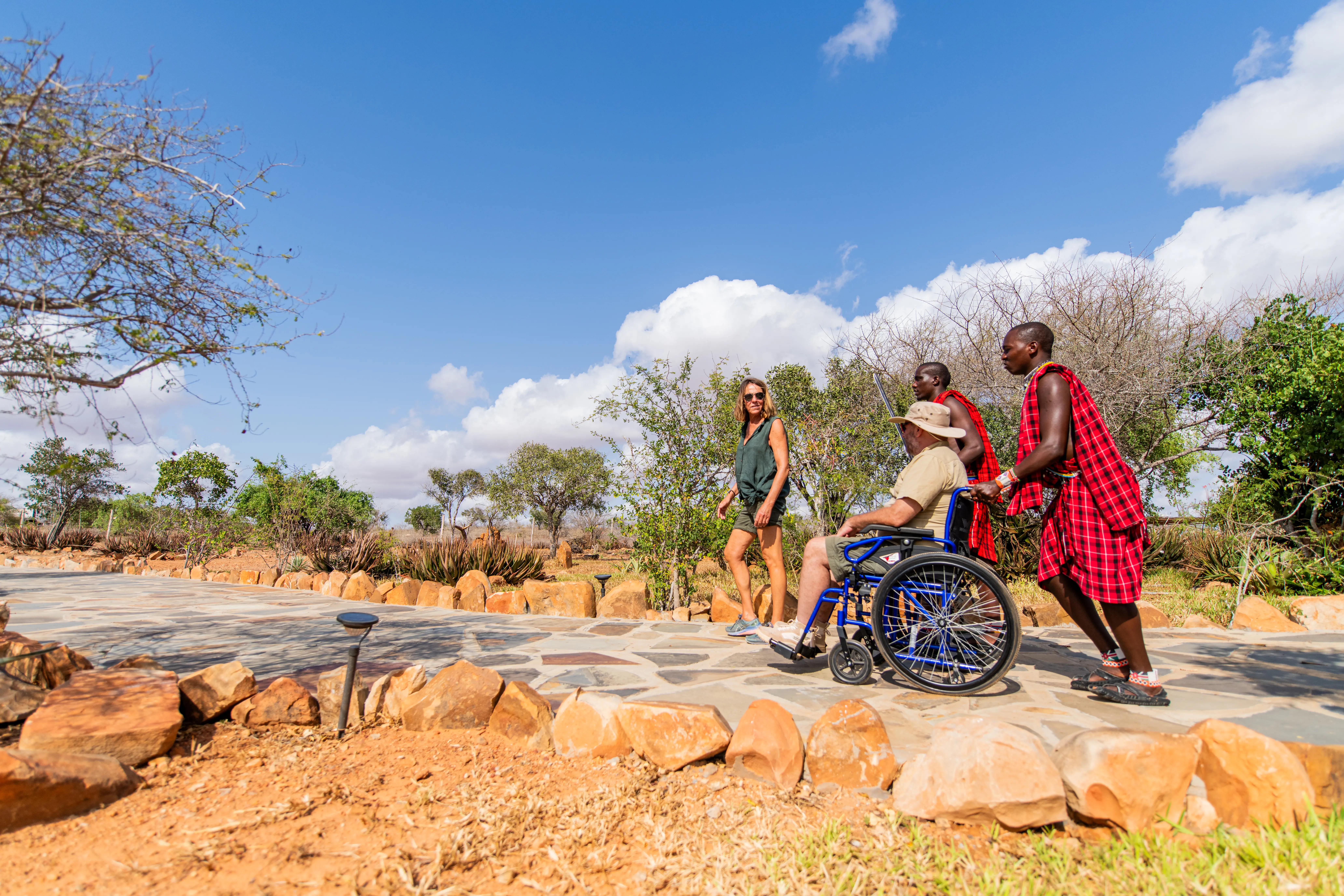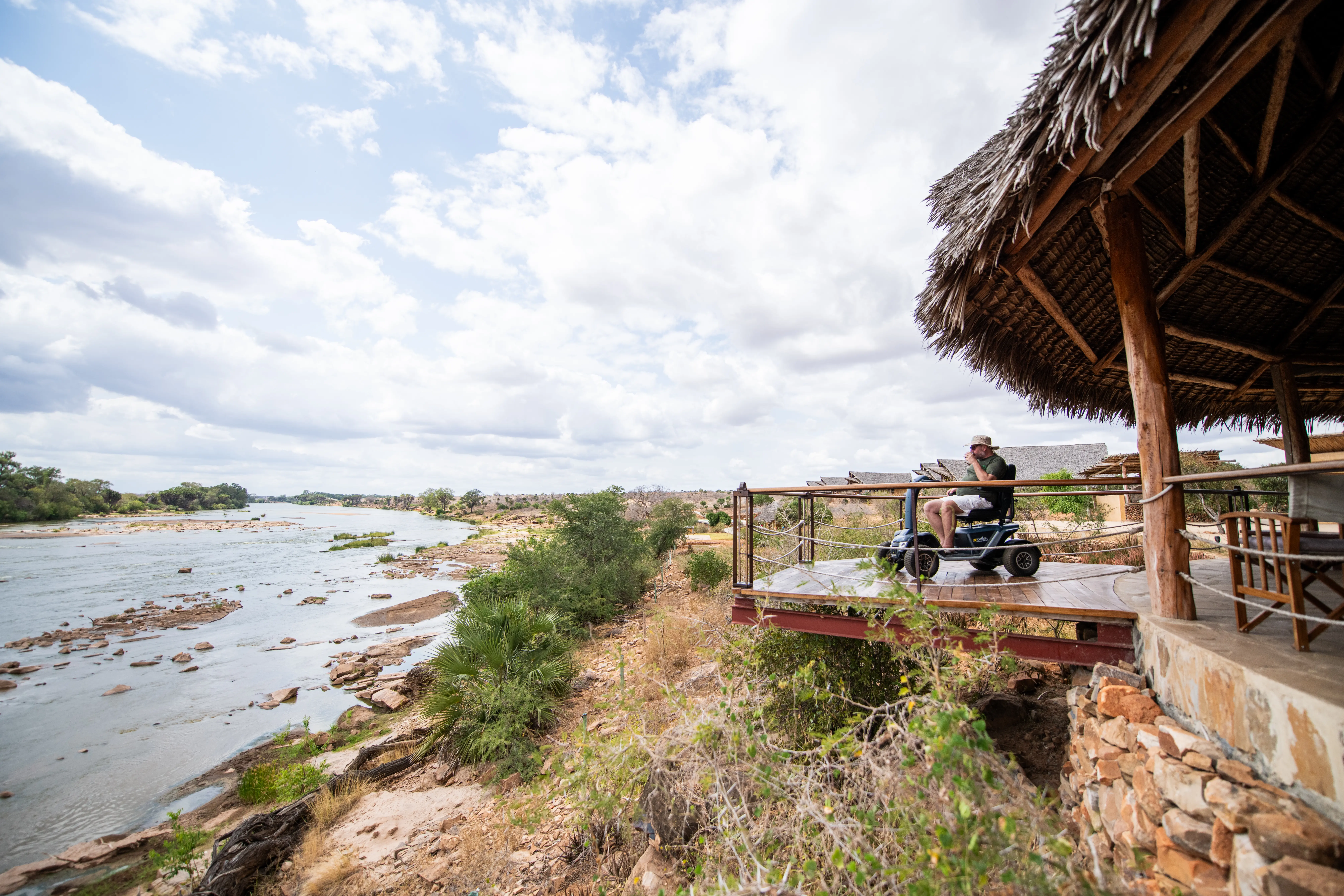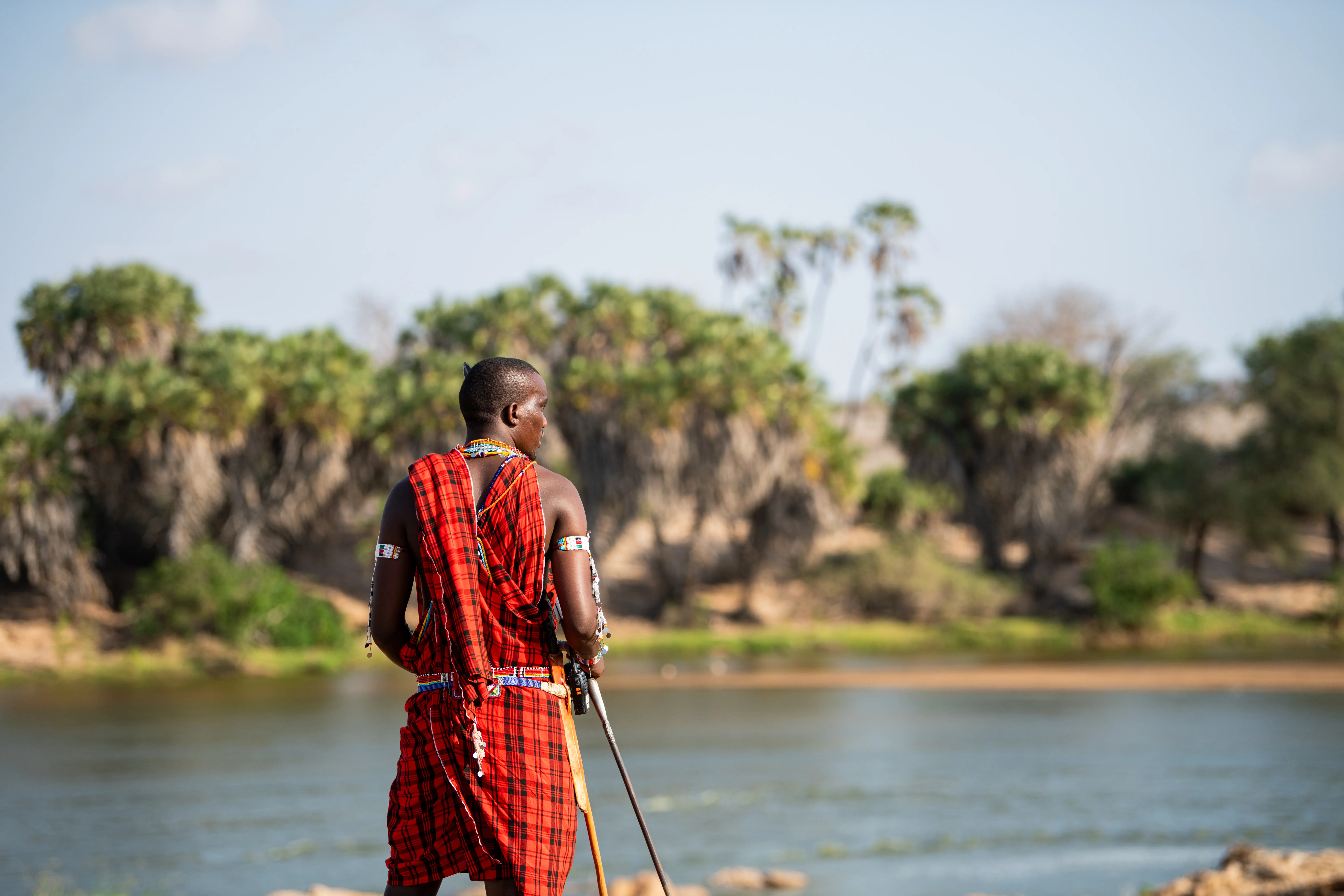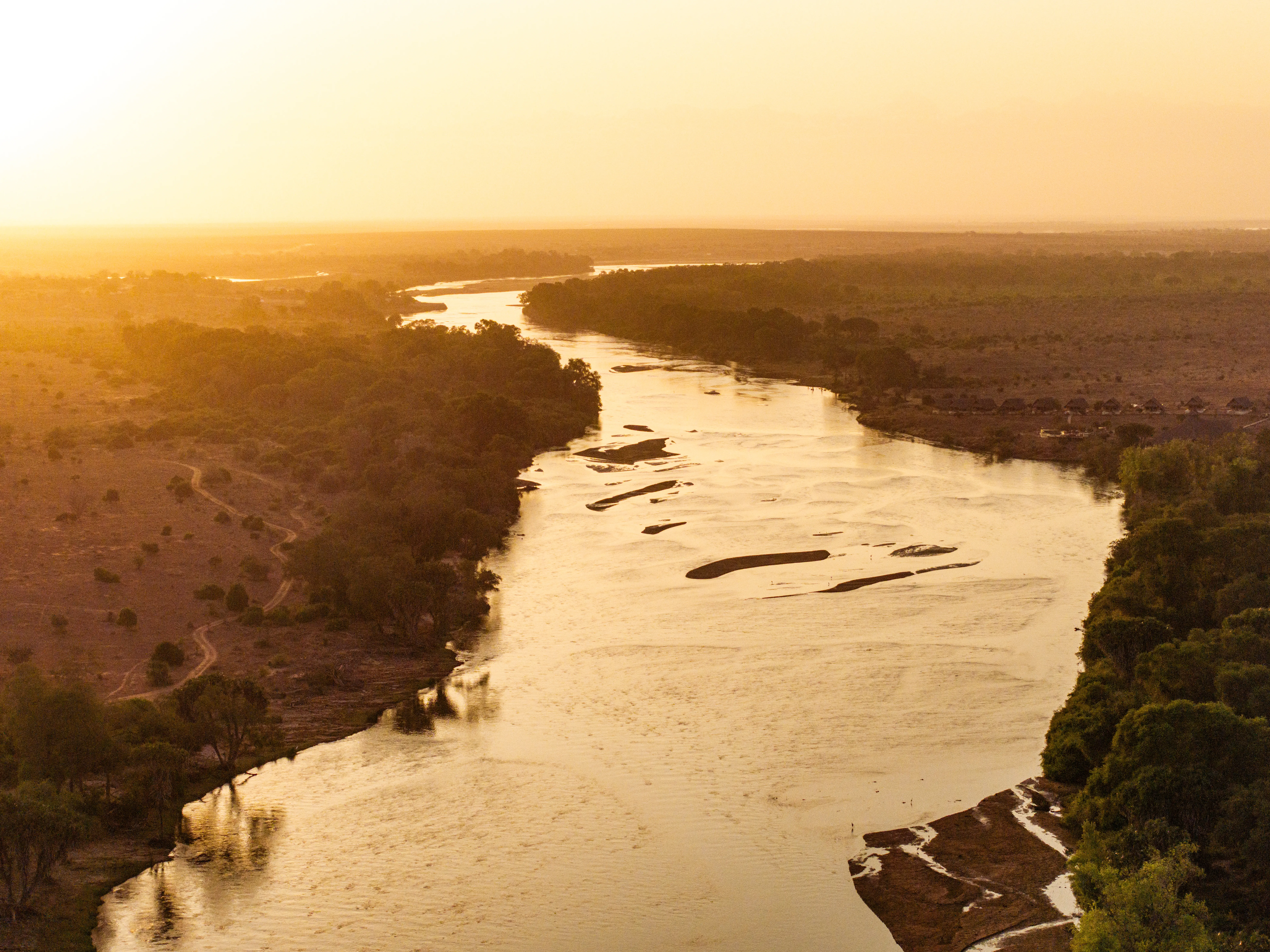Siro Brugnoli lived a life that’s been shaped by resilience. A complex childhood marked by polio, contracted at age four, left his legs and left arm severely affected. After long hospital stays, he spent much of his early years moving on all fours or with the help of a cane. By the age of 14, he began walking with the support of two Canadian crutches, which he used until switching to a wheelchair in recent years.
But Siro never let obstacles get in the way of living his life to the fullest. He traveled extensively, breaking down not only physical barriers but also mental ones. He transformed every difficulty into an opportunity for reinvention and inspired others along the way.

Kiboko River Camp is the realization of Siro’s dream. It is not just a lodge immersed in the African wilderness, but a one-of-a-kind retreat designed by Italian architects with a level of accessibility rarely found in African safari camps.
We had the privilege of meeting Siro in person. We not only heard his story firsthand but also immersed ourselves in his vision and experienced the journey that led him to create a truly inclusive destination. His insights invite us to see the world through the eyes of someone with a disability and to discover how travel can be reimagined for all.

What inspired you to create Kiboko River Camp, and why was it important to build a fully accessible lodge?
I’ve been on many safaris across Africa. When I was still using Canadian crutches, I could manage, even though the camps were not fully equipped for people with disabilities. But once I started using a wheelchair, I realized there were no lodges where I could comfortably stay overnight to enjoy the safari.
That’s when I decided to build one, not only for myself but for others too. I know how important it is, whether you’re disabled or not, to spend a few peaceful days in nature, surrounded by wildlife, without having to compromise on comfort or accessibility.
What makes Kiboko River Camp different from other camps, and how do you ensure an inclusive experience for all guests?
The entire camp is accessible. There isn’t a single step. A person in a wheelchair can move freely from the pool to the bar, the tents, and the restaurant. They can do so independently and without assistance. That freedom is incredibly satisfying.
Hotel facilities advertised with the “Handicap” label, should be certified by a committee also formed by people with disabilities, which I am not aware is done anywhere in the world: which is why many people with disabilities do not travel for fear of being in non-inclusive situations.

What is your vision for Kiboko River Camp’s future, and what message of hope do you want to share with travelers?
My vision for Kiboko River Camp is to host local youth and hold classes on respecting animals and the environment. The future begins with the next generation, and education is key.
My message of hope is that all facilities that claim to be accessible, should truly be accessible. Only then will people with disabilities have the confidence to travel and explore the world freely.
What has been the most meaningful feedback you’ve received from a guest?
One of my proudest moments was when a boy in a wheelchair arrived at the camp. He was able to swim in the pool on his own, without being lifted or assisted, thanks to our electric chair-lift system. That kind of independence and dignity is priceless.
It is fair to say that this man’s life and work is a testimony that with willpower, resilience and empathy, it is possible to turn every difficulty into an opportunity for growth and sharing.


